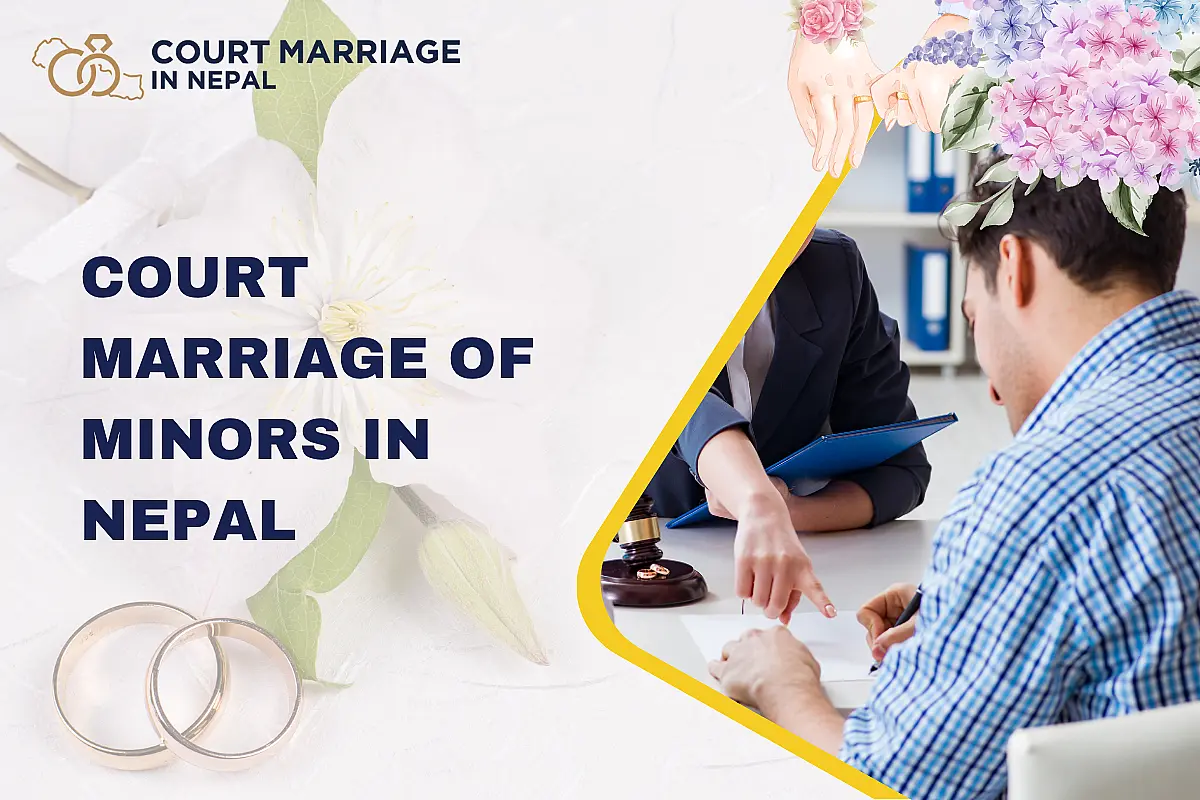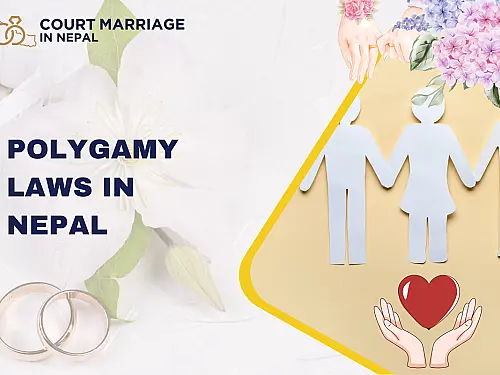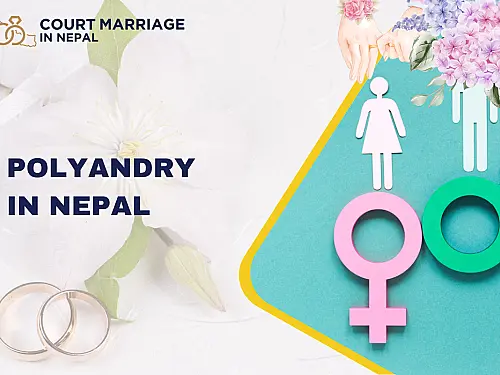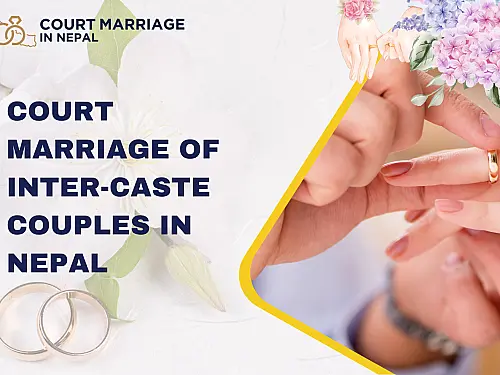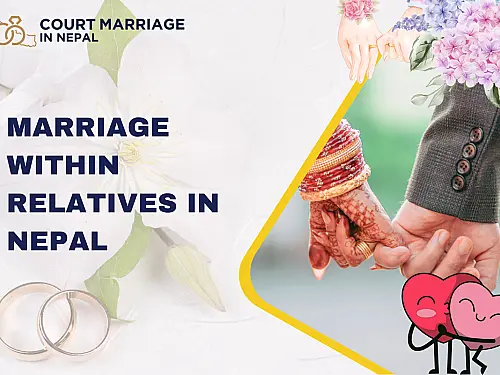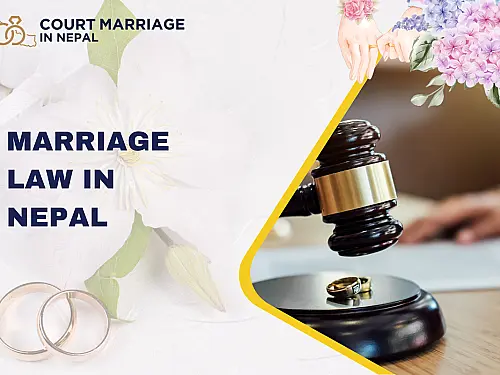If you are an inter-caste couple who wishes to get married in Nepal, you might be wondering what are the legal provisions and social acceptance of court marriage. Court marriage is a form of marriage that is based on mutual consent and recognized by the law. It does not require any religious or cultural ceremonies or rituals. It is also known as civil marriage or registered marriage.
In this article, we will explain the legal provisions and social acceptance of court marriage of inter-caste couples in Nepal.
Legal provisions for court marriage of inter-caste couples in Nepal
To conduct a court marriage of inter-caste couples in Nepal, you need to meet the following legal provisions:
- Both parties must agree to accept each other as husband and wife.
- They must not be relatives as defined by the law.
- Both parties must be over 20 years old.
- A matrimonial relationship should not exist between them.
You also need to submit the following documents:
- A duly filled and signed application form
- Original and notarized copies of your citizenship and citizenship certificate of the witness
- Four passport-sized photos of each applicant
The process of court marriage of inter-caste couples in Nepal involves the following steps:
- Both applicants fill out the application form and sign it in the presence of the court authority.
- The court verifies all the documents, registers the application, and schedules an appointment.
- On the appointed date, both parties and their witnesses must be present in court.
- If all the required documents are submitted and all the legal conditions are met, the judge approves the application, and the court administration issues a certificate of marriage registration.
According to the Constitution of Nepal 2015, every individual has the freedom to establish a family, spend a conjugal life and get married, subject to certain conditions.
The Muluki Civil Code 2017 (2074) also governs the process of marriage registration and prohibits any discrimination based on caste or ethnicity.
In 2009, the Government of Nepal announced that it would give a sum of रू100,000 Nepalese rupees (roughly US$1,350) to couples who have an inter-caste marriage. The recipients would have to claim the sum within 30 days of the marriage. However, this incentive has not been widely implemented or claimed by many inter-caste couples due to various reasons.
Social acceptance of court marriage of inter-caste couples in Nepal
Despite the legal recognition and protection of court marriage of inter-caste couples in Nepal, they may still face some challenges and difficulties from some sections of society, especially those who follow traditional or religious norms. Some of these challenges and difficulties are:
- Lack of family or community support: Some families or communities may not accept or support inter-caste marriages because they fear they will become social outcasts or lose their status or prestige. They may also have prejudices or stereotypes against certain castes or ethnic groups. Some families or communities may also try to prevent or interfere with inter-caste marriages by using threats, violence or coercion.
- Harassment or discrimination: Some inter-caste couples may face harassment or discrimination from their neighbors, friends, relatives or strangers because of their relationship status or identity. They may also face institutional discrimination from some authorities or organizations that may deny them their rights or benefits. Some inter-caste couples may also face legal challenges from their families or communities who may file false complaints or cases against them.
- Psychological or emotional stress: Some inter-caste couples may experience psychological or emotional stress due to the lack of social acceptance or support from their families or communities. They may also feel isolated, lonely or insecure due to their relationship status or identity. They may also face conflicts or misunderstandings with their spouses due to their different cultural or religious backgrounds.
However, some inter-caste couples may also find some support and acceptance from some sections of society, especially those who are more educated, progressive or open-minded. Some of these sources of support and acceptance are:
- Supportive family or community members: Some family or community members may accept or support inter-caste marriages because they respect their individual choices and freedoms. They may also have positive attitudes or experiences with certain castes or ethnic groups. Some family or community members may also help inter-caste couples with their legal process and documentation.
- Like-minded friends or peers: Some friends or peers may accept or support inter-caste marriages because they share similar values or interests with the inter-caste couples. They may also have personal or professional relationships with certain castes or ethnic groups. Some friends or peers may also provide emotional or practical support to inter-caste couples in times of need.
- Civil society organizations or activists: Some civil society organizations or activists may accept or support inter-caste marriages because they advocate for human rights and social justice. They may also have expertise or experience with certain castes or ethnic groups. Some civil society organizations or activists may also offer legal or counseling services to inter-caste couples who face challenges or difficulties.
Conclusion
Court marriage of inter-caste couples in Nepal is a legal and valid option for getting married in Nepal. However, it may not be socially accepted or supported by some sections of society, especially those who follow traditional or religious norms. Inter-caste couples may face some challenges and difficulties from their families, communities or authorities who may not respect or recognize their relationship status or identity. Inter-caste couples may also find some support and acceptance from some sections of society, especially those who are more educated, progressive or open-minded. Inter-caste couples may also seek help from civil society organizations or activists who advocate for human rights and social justice.
At Court Marriage In Nepal, a registered law firm operating as Court Marriage In Nepal Pvt. Ltd., we specialize exclusively in Court Marriage Nepal. As the first law firm in Nepal dedicated to court marriage services, we assist both Nepali citizens and foreign nationals with the court marriage registration process in Nepal, including complete legal support for court marriage registration for foreign citizens in Nepal. As a trusted marriage firm in Nepal and a licensed law firm in Nepal, we ensure a smooth, lawful, and stress-free experience. Contact us today for confidential assistance with court marriage registration in Nepal.

